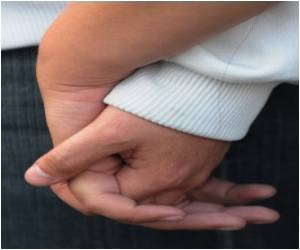A minister's description of homosexuality as unnatural this week shows that prejudices still run deep

Homosexuality was "unnatural and not good for India" and "a disease which has come from other countries", he was quoted as saying, though he later said he did not consider being gay a disease.
The condemnation from India's gay activists was quick and forthright, reflecting the growing confidence of a minority movement that is no longer scared of asserting its rights.
Other signs of the community's increasing visibility include the sale of same-sex Valentine's Day cards and gay magazines, as well as the Bollywood blockbuster "Dostana", in which a mother welcomes her son's supposed boyfriend into her home.
The country's first gay pride store was launched in an upmarket suburb of Mumbai in December 2009.
But even on the streets of central New Delhi, one of the most liberal parts of India, many wondered why the comments by Azad, a Muslim from the violence-wracked region of Kashmir, had caused such a fuss in the media.
Advertisement
He said he was "in total agreement" with the minister, a member of the ruling Congress party and holder of a masters degree in zoology.
"Men were never supposed to have sex with men (or for that matter, woman having sex with another woman) -- the structure of our body and incapability of two men (or women) to reproduce is ample proof of that," he wrote.
Many Indians, particularly in rural areas, simply regard homosexuality as a mental illness, or something shameful to be ignored.
The country has no high-profile figures who are openly gay or lesbian in sport, politics, or entertainment.
Prior to the High Court ruling, homosexuality was illegal in India under a 150-year-old British colonial law that banned "carnal intercourse against the order of nature". Conviction carried a fine and maximum 10-year jail sentence.
Gay rights activist Nitin Karani told AFP that "the ruling helped to start a conversation about gay rights in India, but it's still not easy to be gay here."
He added: "Attitudes haven't changed much, you deal with a lot of ridicule, gossip, and irrational ignorance."
A few years ago he dated someone who eventually "caved in to his family and got married to a woman", he said
But Parmesh Shahani, author of "Gay Bombay: Globalization, Love and (Be)longing in Contemporary India", told AFP that the criticism of Azad's comments was a sign of progress.
"What's noteworthy is that the criticism has come from civil society at large, not just from gay people," Shahani said.
"India is a historically tolerant and plural society, and people are realising that if we have global aspirations, we need to make a choice not to discriminate between people."
Business school graduate Aparna Sharma, 21, called the minister's comments "completely wrong," and added "people should be able to love whomever they want."
"There's a long way to go though before Indian society accepts homosexuality. There are so many conservative people here," she told AFP.
Source-AFP








